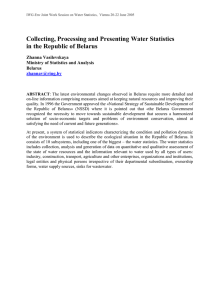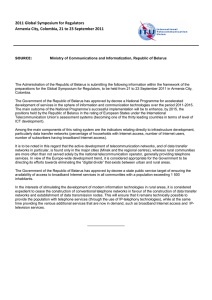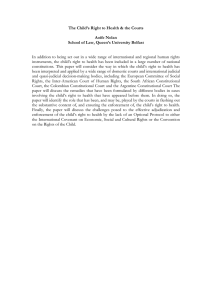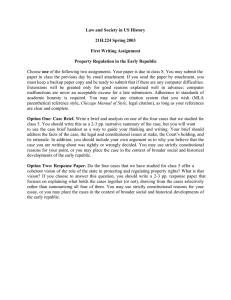Belarus Court System: Supreme, Economic, Constitutional Courts
advertisement
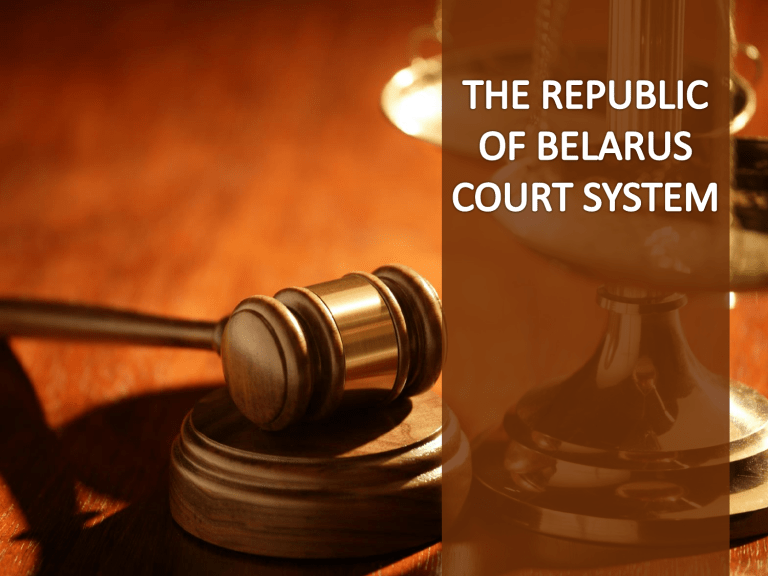
The system of courts in Belarus is based on territorial principle and specialization. The judicial system of Belarus consists of three high courts: the Supreme Court, the Economic Court, and the Constitutional Court. The latter court is charged with protecting the constitution, and its decisions are not subject to appeal. It has the power to review the constitutionality of presidential edicts and the regulatory decisions of the other two high courts. The Constitutional Court of the Republic of Belarus The Constitutional Court of the Republic of Belarus was formed on the 28th of April 1994, consists of 9 judges elected by the Supreme Council of the Republic of Belarus. In May 1996 the Supreme Council appointed additionally two more Judges for the Constitutional Court. The Constitutional Court is to be formed on parity basis: 6 Judges are to be appointed by the President, 6 Judges are elected by the Council of the Republic (Upper chamber of the Parliament). The Chairman of the Constitutional Court is to be the one chosen by the President from the Judges, the choice must be approved by the Council of the Republic. At present there are 11 Judges constituting the Court. Term - 11 years. It is allowed to be appointed for the Judge position for the second time. The Constitutional Court does not have the legislative initiative as it controls the legitimacy of legal acts. But in accordance with the existing Law the Court has the power to suggest to the Parliament Chambers, the President, Ministers Council and other state bodies alterations and amendments to the acts of the existing law, adoption of new standard acts. Such suggestions are to be obligatory considered. The Supreme Court of the Republic of Belarus: Regional Court, Minsk Municipal Court, District (municipal) Court, Court Martial. Their responsibilities include the review of the following types of cases: -criminal cases; -civil cases on disputes arising from civil, family, labor, housing, land and other relations, provided that at least one of the parties is an individual; -cases involving the creation, legal protection and use of intellectual property, regardless of the parties to the dispute - cases involving legal entities only in cases expressly provided for by the laws of the Republic of Belarus, decrees and orders of the President of the Republic of Belarus. Interpost military courts and the Belarusian Military Court review civil cases for claims arising from military service relations, as well as criminal cases on all crimes committed by persons who have the status of military men. To the economic courts belong: The Supreme Economic Court of the Republic of Belarus, which consists of: Plenum of the Supreme Economic Court of the Republic of Belarus, Presidium of the Supreme Economic Court, College for Control over legitimacy of Economic Court decisions, Court Colleges for solving certain category disputes, Economic Courts of regions and equal Courts, Economic Courts of Cities and Districts. Economic Courts are empowered to solve disputes on: -disagreements on contracts that stipulated by the Law of the Republic of Belarus; or passing the disputes on economic court decisions is agreed by the sides; -altering of conditions and dissolution of contracts; -not fulfilling or not adequate fulfilling of the duties; -recognition of freehold -returning back the property from the illegal ownership; -recovery of damages; -declaring invalid (fully or partially) a non-standard act of state or other authority that does not correspond to the existing legislation of the Republic of Belarus and that abuses the rights and legal interests of juridical persons (JP), independent employers (IE); -protection of business reputation; -reject the state registration or deviation from state registration in set terms of a juridical person or IE, also in other cases when such a registration is stipulated by existing legislation; -collecting from JP or IE of taxes, other obligatory payments to the state budget and state extra-budget funds, fines and other economic sanctions; -return from budget and state extra-budget funds cash assets indisputably written off from JP or IE in the form of economic sanctions or for other reasons; -dissolution, re-structuring of JP, stoppage of activity of IE; -insolvency, bankruptcy; -refusal to prolong or issue a license.
